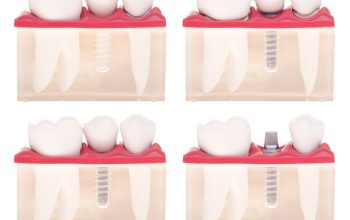


Since the end of World War II, advances in general family dentistry and cosmetic dentistry procedures have reduced the number of people in the world with tooth decay by a staggering 55%! Even so, because of our terrible habit of liking sweet foods too much, while simultaneously ignoring the advice given to us by our family dentists, tooth decay is on the rise, with 74% of Americans, according to Statistic Brain, having at least one type of periodontal disease.
These diseases lead directly to the need for tooth replacements, in the form of all on four dental implants or otherwise, teeth whitening procedures, and cavity fillings, all of which cost money that many families are sick and tired of spending. Of course, choosing to develop good dental hygiene habits, like those our general family dentistry professionals have been trying to get us into for years, can help us avoid these issues. That is so long as we equip ourselves with the right tools, including mouthwash and toothpaste.
How to Choose a Mouthwash
When it comes to mouthwash, you truly don’t need any of those expensive, fancy varieties to help keep your teeth looking and feeling great. According to Everyday Health, adults need mouthwash that contains fluoride, for strengthening enamel, and options with anti-plaque properties added. Those other options, whether they freshen breath or fight cavities, are marginally useful, but with proper brushing and flossing, you won’t need them.
What Should You Look for in Your Toothpaste?
Toothpaste seems even more difficult to choose than mouthwash, if only because there are so many more varieties. Do you choose the off-brand, or the name brand with the added sensitive teeth feature? For Delta Dental, a prominent dental insurance agency, it all comes down to you, though there are a few things you’ll want universally. Whether you have special dental needs or not, you should always go with a fluoridated toothpaste and one that bears the mark from the American Dental Association. Beyond that, you should really talk to your dentist before dropping extra money on tartar control or whitening toothpastes, as they may have little to no effect on your dental health.
Are any of you dentists or dental hygienists working in general family dentistry? What other tips can you give readers on choosing the right tools for healthier, whiter teeth? Let us know in the comments below! More.



